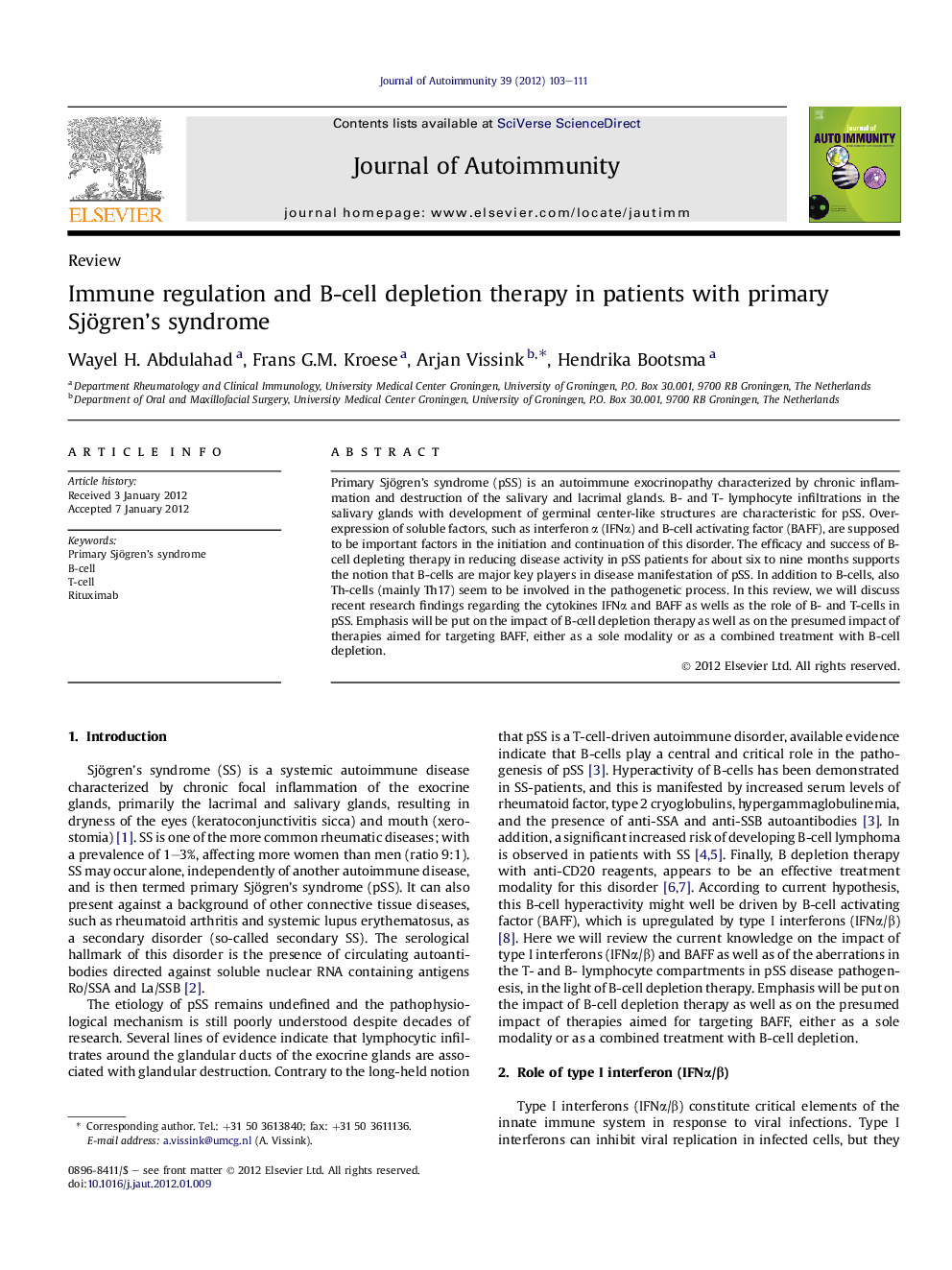| Article ID | Journal | Published Year | Pages | File Type |
|---|---|---|---|---|
| 3367957 | Journal of Autoimmunity | 2012 | 9 Pages |
Primary Sjögren’s syndrome (pSS) is an autoimmune exocrinopathy characterized by chronic inflammation and destruction of the salivary and lacrimal glands. B- and T- lymphocyte infiltrations in the salivary glands with development of germinal center-like structures are characteristic for pSS. Overexpression of soluble factors, such as interferon α (IFNα) and B-cell activating factor (BAFF), are supposed to be important factors in the initiation and continuation of this disorder. The efficacy and success of B-cell depleting therapy in reducing disease activity in pSS patients for about six to nine months supports the notion that B-cells are major key players in disease manifestation of pSS. In addition to B-cells, also Th-cells (mainly Th17) seem to be involved in the pathogenetic process. In this review, we will discuss recent research findings regarding the cytokines IFNα and BAFF as wells as the role of B- and T-cells in pSS. Emphasis will be put on the impact of B-cell depletion therapy as well as on the presumed impact of therapies aimed for targeting BAFF, either as a sole modality or as a combined treatment with B-cell depletion.
► B-cells are expected to be a key player in manifestation/progression of pSS. ► The IFNa/BAFF/B-cell axis plays a critical role in the pathogenesis of pSS. ► Adding a BAFF-blocker to rituximab might be useful to increase treatment effectivity. ► Plasticity in TRegs may underlie their involvement in salivary gland dysfunction.
